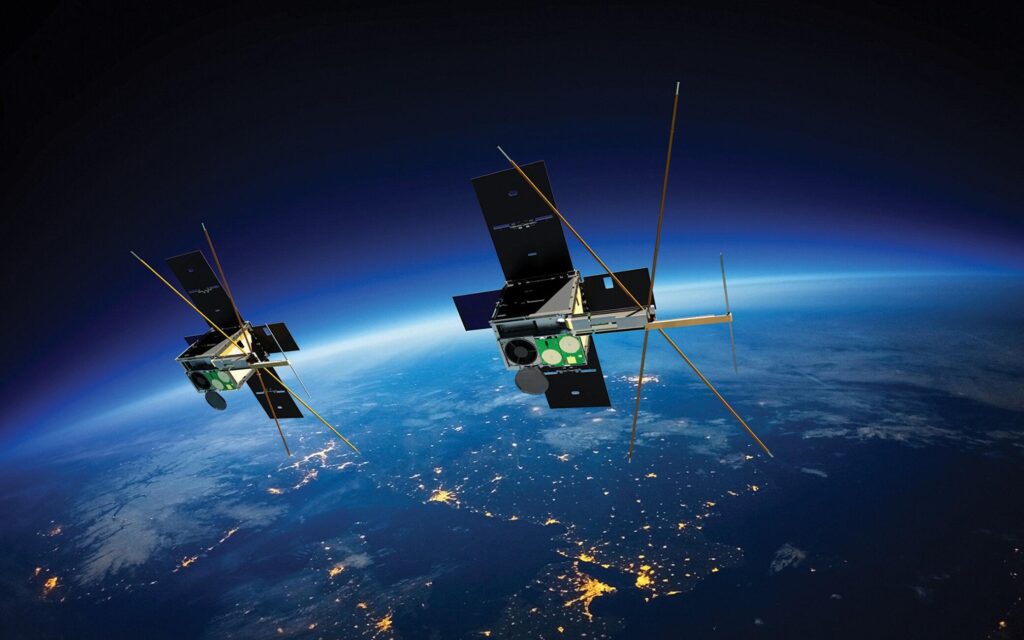In recent years, satellite technology has become a cornerstone of modern innovation, driving transformative changes across various sectors. With advanced satellite systems, we are witnessing a new era in satellite communication, enabling seamless connectivity even in the most remote regions of the globe. However, as this technology evolves, satellite privacy concerns have emerged, highlighting the delicate balance between security and individual rights. The impact of satellite technology extends beyond mere communication; it influences global connectivity and fosters international cooperation in addressing pressing challenges. As we stand on the brink of this new frontier, the implications of satellite technology will undoubtedly shape our future and alter the fabric of society as we know it.
The realm of orbital technology is rapidly advancing, paving the way for innovative solutions that affect both defense and civilian life. These cutting-edge satellite systems enhance our ability to communicate and share information globally, breaking down barriers that once limited connectivity. As we explore the implications of this technology, we must also confront the ethical dilemmas associated with surveillance and privacy that arise from enhanced satellite capabilities. Moreover, the importance of global interconnectivity cannot be understated, as these developments enable nations to collaborate more effectively in both crisis management and everyday communications. Ultimately, the evolution of satellite technology stands to redefine our interactions and reshape the way we perceive our place in the world.
The Transformative Power of Satellite Technology
Satellite technology has ushered in a new era of communication, enabling instantaneous data transfer across vast distances. The implementation of advanced satellite systems has enhanced not only military operations but also civilian applications, such as weather forecasting and disaster management. This transformation fosters global connectivity, making it possible for individuals in remote areas to access information and services that were previously out of reach.
Moreover, the advancements in satellite communication have led to improved internet connectivity worldwide. This has significant implications for education and business, as more people can participate in the digital economy. The potential for universal internet access could change the landscape of global communication, bridging the digital divide and promoting economic opportunities in underserved regions.
Frequently Asked Questions
What are advanced satellite systems and how do they enhance communication?
Advanced satellite systems utilize cutting-edge technology to improve data transmission speed and reliability. These systems facilitate efficient satellite communication, ensuring that critical information is relayed swiftly for both military and civilian uses, thereby revolutionizing global connectivity.
How does satellite technology impact national defense strategies?
Satellite technology plays a crucial role in national defense by providing real-time data and enhanced communication capabilities. This allows for quicker responses to threats and better coordination among allied forces, marking a significant evolution in defense strategies.
What are the privacy concerns associated with satellite technology?
As satellite technology advances, it raises significant privacy concerns regarding surveillance capabilities. Enhanced satellite systems can lead to intrusive monitoring of individuals, prompting discussions about the need for regulations to protect personal privacy without compromising national security.
In what ways does satellite technology promote global connectivity?
Satellite technology fosters global connectivity by enabling internet access in remote areas, bridging the digital divide. This expanded connectivity allows for improved communication, education, and economic opportunities, making it a vital tool for societal advancement.
What is the potential impact of satellite technology on environmental monitoring?
Satellites are essential for environmental monitoring, providing critical data on climate change, natural disasters, and deforestation. This information is vital for proactive environmental management and disaster response, though it also raises concerns about the reliability of these networks during crises.
How can satellite technology influence cultural exchanges?
Satellite technology enhances communication across the globe, enriching cultural exchanges by allowing for immediate interaction and sharing of ideas. However, this interconnectedness also risks cultural homogenization, potentially eroding unique cultural identities.
What ethical considerations arise with the advancement of satellite technology?
The advancement of satellite technology introduces ethical considerations such as digital colonialism, where powerful nations may dominate satellite systems, creating dependency among less developed countries. Establishing international legal frameworks is essential to address these concerns and promote equitable access.
| Key Point | Description |
|---|---|
| A New Frontier in Defense | Advanced satellite radios enhance national defense through improved data transmission and quicker threat responses. |
| Economic Growth and Potential Trade-offs | Advancements in satellite technology create jobs and attract investments but may require cuts in education and healthcare. |
| Privacy and Surveillance Concerns | Enhanced satellite capabilities necessitate careful regulation to balance national security with personal privacy. |
| Global Repercussions and Cooperation | Increased satellite capabilities could lead to an arms race or promote collaborative space exploration. |
| Impact on Connectivity and Communication | Advanced satellites may enable universal internet access, affecting education and employment opportunities worldwide. |
| Environmental Monitoring and Action | Satellites provide real-time data for climate monitoring and disaster management, but reliance on them poses risks. |
| Cultural and Social Dimensions | Global communication advances cultural exchanges but risks cultural homogenization. |
| The Ethical Dimension | Ethical concerns arise regarding digital colonialism and the need for international legal frameworks. |
Summary
Satellite technology is poised to transform various aspects of life, from national defense to global connectivity. As advancements continue to unfold, they offer unprecedented opportunities while also raising critical ethical and societal questions. The balance between leveraging satellite innovations for economic and social benefits, while ensuring privacy and environmental sustainability, will shape the future landscape of how humanity interacts with technology.


More Stories
Technology Rising Star: Awardees from Ames Aeromechanics
Microplastics Detection: How to Combat Environmental Pollution
Retail Pharmacy Technology: Transforming Patient Experience